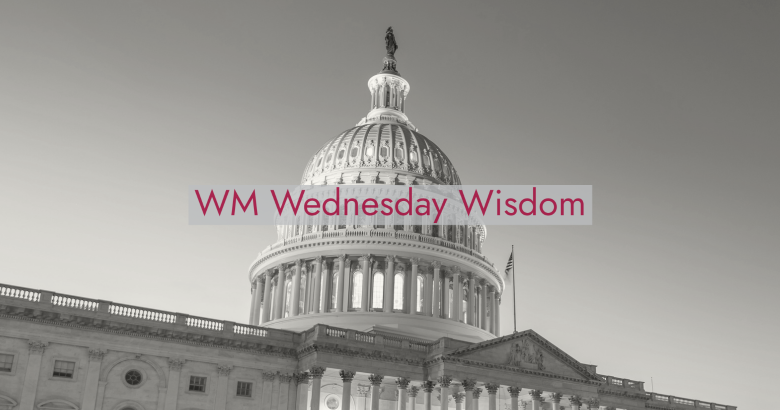Highlights of Tax Provisions and Tax Credits in the Inflation Reduction Act of 2022
On July 27, 2022, Senator Joe Manchin and Senate Majority Leader Chuck Schumer announced that they have reached an agreement on a budget reconciliation bill (the Inflation Reduction Act of 2022, the “Act”) which they will co-sponsor and propose to Congress for passage.
According to the bill’s summary, there are no new taxes on families making $400,000 or less and no new taxes on small businesses.
Tax Provisions
The following are some highlights of important tax provisions included in the Act:
Establishing a 15% Corporate Minimum Tax
- The imposition of a 15% domestic tax, referred to as a corporate alternative minimum tax, on the approximately 200 largest corporations. The tax would be on adjusted financial statement income for corporations with profits in excess of $1 billion. This provision would be effective for tax years beginning after December 31, 2022.
Carried Interest Rules
- Subject to certain limited exceptions, the Act would replace the three-year holding period with a five-year holding period requirement that would need to be satisfied in order for taxpayers with adjusted gross income of $400,000 or more to be eligible for the preferential long-term capital gain treatment with respect to carried interests in certain partnerships. This provision would be effective for taxable years beginning after December 31, 2022.
Funding the IRS and Improving Taxpayer Compliance
- An investment of $80 billion over the next 10 years for IRS taxpayer services, enforcement, operations, and business system modernization.

Environmental Credits
There are numerous provisions to address climate change, including tax credits for individuals and businesses.
- The Act extends the $7,500 tax credit for the purchase of a new electric vehicles (EV) and $4,000 for the purchase of a used EV.
- Currently, the EV tax credit includes a cap of 200,000 vehicles sold per manufacturer, meaning companies like Tesla and GM no longer qualify for the federal tax credit. The legislation eliminates this cap.
- Finally, eligibility for the EV tax credits would be capped to an income level of $150,000 for a single filing taxpayer and $300,000 for joint filers for new vehicles and at $75,000 and $150,000 for used cars.
- Alternative and Renewable fuels Tax Credit – Extends $1/gallon tax credit for biodiesel and renewable diesel through 2024, extends the alternative fuel mixing credit and payments for alternative fuels through 2024
- The High-Efficiency Electric Home Rebate Program- This includes up to $4,000 for homeowners completing a whole-house project, based on the energy performance of the home – and the rebate amount doubles for low- and moderate-income households.
- The High-Efficiency Electric Home Rebate Program,- This will include up to $1,750 for a heat pump water heater, up to $8,000 for a heat pump for space heating or cooling, up to $840 for electric cooking equipment or a heat pump clothes dryer, as well as funding for upgrading electric load service, insulation and air sealing, and electric wiring.
- New Energy efficient home tax credit – Tax incentives covering up to 30 percent of the cost of replacing appliances and equipment in a home, including up to $600 for central air conditioning systems and windows, and up to $2,000 for efficient heat pumps and heat pump water heaters.
- New commercial tax credit for qualified commercial clean vehicles.

Other Provisions
Additional provision in the Inflation Reduction Act of 2022 bill include:
Negotiation of Lower Drug Prices for Seniors
- Medicare will begin negotiating lower drug prices for seniors and people with disabilities. Drug price negotiation will focus on the highest expenditure drugs that have been on the market for between nine and 13 years.
Inflation Caps for Prescription Drugs
- The bill caps increase in prescription drug prices to the rate of inflation, putting a much-needed limit on how much manufacturers can raise costs for people who rely on prescriptions to manage their health.
Improved Medicare Prescription Benefits
- Seniors’ out-of-pocket costs for prescription drugs covered by Medicare Part D will be capped at $2,000 a year, benefitting 1.4 million enrollees annually.
Affordable Care Act (ACA, or Obamacare) Extension
- Currently, medical insurance premiums under the ACA are subsidized by the federal government to lower premiums. These subsidies, which are scheduled to expire at the end of this year, would be extended through 2025.
Next Steps
Although much needs to be done before the Act can be placed on President Biden’s desk for signature, in order to satisfy the complex requirements of the reconciliation process, Democrats are expected to push aggressively to get this legislation passed and ready for the President’s signature by September 30th.
Questions
We will keep you posted with further developments. As always, should you have questions about this topic, or any other topics related to your personal or business situation, please contact us at any time.
DISCLAIMER: The WM Daily Update, WM Wednesday Wisdom, Newsletters, COVID-19 Business Resources, COVID-19 Client News Alerts and other related communications are intended to provide general information on legislative COVID-19 relief measures as of the date of this communication and may reference information from reputable sources. Although our firm has made every reasonable effort to ensure that the information provided is accurate, we make no warranties, expressed or implied, on the information provided. As legislative efforts are still ongoing, we expect that there may be additional guidance and clarification from regulators that may modify some of the provisions in this communication. Some of those modifications may be significant. As such, be aware that this is not a comprehensive analysis of the subject matter covered and is not intended to provide specific recommendations to you or your business with respect to the matters addressed.
For more information on the Inflation Reduction Act of 2022, please click here to visit the Senate Democratic Leadership website.


